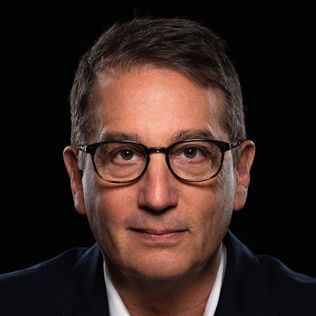The Secret to a Happy Life – The Most Powerful Mindset Shift for Lasting Joy
Nov 13, 2025Finding the Secret to a Happy Life
I’ve got some really good news for you today. I have found the secret to a happy life. You want to know what it is? Two things: acceptance and gratitude.
If I live in acceptance and gratitude, I will have a great life. It’s not easy—it’s a practiced art—but I try. No matter what’s going on in my life, I look at it, accept it, and find gratitude for it happening. That gives me the opportunity to change it to the best of my ability.
Now, I can’t do much about global warming, but I can accept it and be grateful that I’m alive today. If I may not like the political situation, I can accept it and do my best in my own small way to make it better. But most of the time, I don’t live in that space. I live where most of you do—within the 150 relationships we all have.
The Power of Relationships
There’s a number called Dunbar’s Number—it’s about 150 people. That’s the average number of close relationships a person can maintain. Think about it: most weddings have around 150 guests. That’s our little sphere—and it’s where we make our greatest impact.
The Practice of Gratitude
No matter what’s happening in my life, even when something bad occurs, I sit back and reflect. I ask myself:
-
What happened?
-
What’s the cause?
-
What’s my part in it?
And then I show gratitude—because I can change it. I ask, How can I make this better? And I take it one step further: How can I share what I’ve learned with others so I can become a teacher?
Teaching is a big part of what I do—not just to dentists or doctors when I teach surgery, but to my patients every day.
Meeting Patients Where They Are
Most of my patients don’t come in filled with gratitude. I’m a periodontist. Many people see me as someone who cuts, removes teeth, places bone, does scary procedures, charges a lot, takes time, and causes pain.
Most of my patients are what I call “the walking wounded.” They’ve had bad experiences over 30 or 40 years, spent thousands of dollars, and things didn’t turn out well. They’ve lost trust—trust in dentistry and sometimes in themselves.
The first thing I have to do is accept what they’re telling me as their truth. I tell them, “I know how you’re feeling.” They often don’t believe me—how could I? But when I share my own medical and dental challenges, they begin to relate a bit more.
Still, real trust doesn’t come until they experience treatment. That’s why I show gratitude—for them being there, for trusting me, for giving me the opportunity to help. I meet them, as my friend Bob Levy says, knee to knee, eye to eye. I tell them sincerely: “I’m going to help you, and I’m so grateful you’ve given me your trust.”
The Foundation of All Relationships: Trust
The most important ingredient in any relationship—whether it’s patient-doctor, employer-employee, or spouse—is trust.
If a patient trusts you, everything changes. I was talking about this recently with my good friend Jorin while preparing a lecture for my associates. He asked, “What’s the lecture about?” I said, “Building relationships.” He replied, “Trust.” Exactly.
I’ve worked with Jorin for over 40 years, and his patients trust him deeply. When trust is strong, everything flows. But when trust erodes—as it sometimes does—it’s difficult to rebuild.
Relationship expert John Gottman talks about this in his research. He can tell within 90 seconds whether a relationship is salvageable based on whether the two people still trust each other.
Patients come in searching for trust—but they rarely believe they’ll find it. When you connect with them through acceptance, playfulness, and gratitude, amazing things happen. Then you can do the work they need and educate them in a meaningful way.
Practicing Acceptance and Gratitude Daily
If you’re not practicing acceptance or gratitude, think about it. We all have bad days. I do too.
When I’m in a bad mood, I check in with myself:
-
Am I in acceptance?
-
Do I accept where I am right now?
-
Do I have gratitude for the life I’ve been given and the difference I can make?
It’s easy to live in the gap, as Dan Sullivan says—focusing on what we don’t have instead of what we do. I’m an overachiever like many of you, always looking toward the horizon instead of appreciating where I am.
But when I stop, accept, and feel gratitude, I find peace.
Be the Gift
So as you go through your day, remember: acceptance and gratitude are the keys to happiness, fulfillment, and connection.
When you practice them, you become a gift—to your patients, your loved ones, and yourself.
Continue to be the gift, in acceptance and in gratitude.



